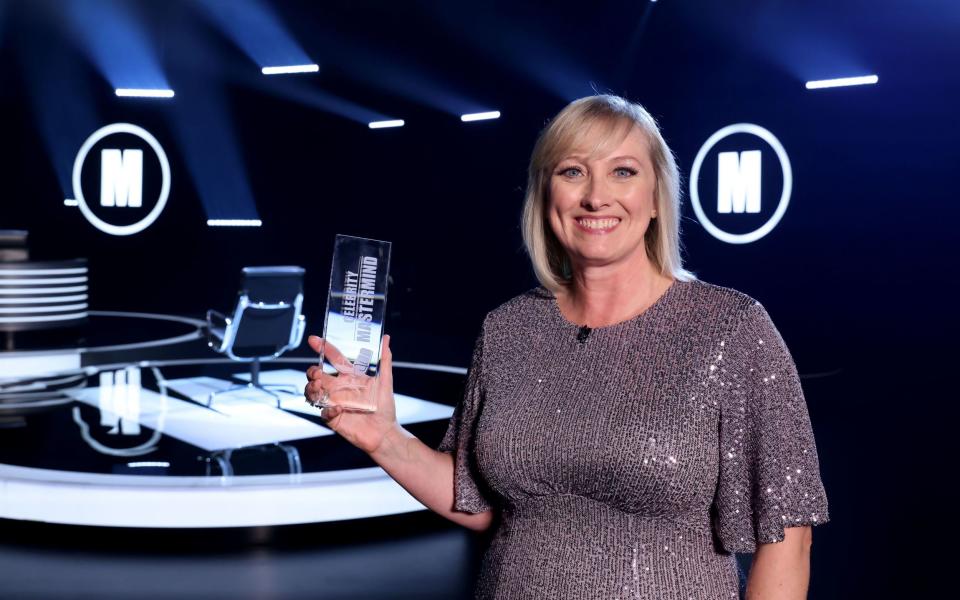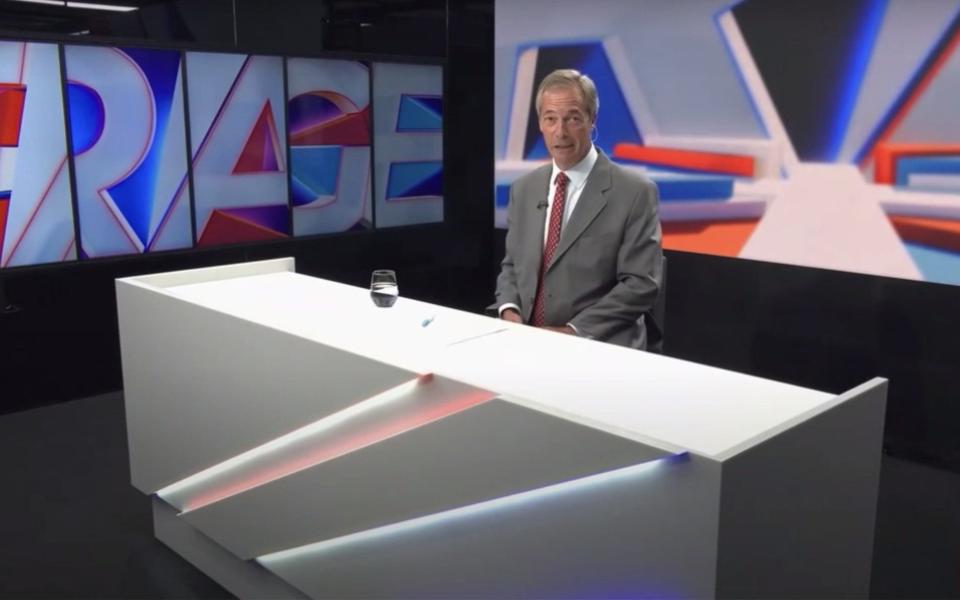BBC news coverage risks losing out to rivals as deep cuts bite

When the BBC consigned the live broadcast of the Belfast Twelfth of July Parade to the editorial dustbin, more than six decades of in-depth coverage came to an end.
While the national broadcaster still provided highlights or marches, the second-by-second account of the Orangemen's celebration fell to Auntie's plucky rival to pick up.
GB News, the insurgent network trying to disrupt Britain's media landscape with its opinionated take on current affairs, delivered the blow-by-blow coverage of unionist pride instead in a boost for the broadcaster's credibility.
The Grand Orange Lodge of Ireland, which organises the events, welcomed the fledgling channel's support. However, it told the Belfast Telegraph that the BBC's decision was a "snub to our communities" that had caused immense disappointment and frustration.
It could be a taste of things to come. The BBC's plan to scrap its two rolling news channels for UK and overseas audiences and launch a global station serving both has become the latest row to engulf the corporation amid fears it will dial down national coverage.
Taking to Twitter last week, BBC newsreader Martine Croxall lashed out at the plans. "I do not believe the true extent of the damage to the news channel has been made plain," she said.
"The replacement channel will be commercial and aimed at an overseas audience.
"The UK licence fee payer will not recognise it."
Poised to come into force next year, the shake-up will mean that studios at Broadcasting House helm UK and global news coverage during the day, before a a switch to presenters in Washington and Singapore overnight.
Cost-saving is among the driving forces behind the plans. They will put 70 jobs at risk, as part of the BBC's enduring quest to slash its budget amid falling income from the licence fee.
With GB News bolstering its patriotic coverage following a fresh £60m investment and Sky News – helmed by the likes of Kay Burley – continuing to benefit from the deep pockets of its American owner Comcast, there is danger that the cutbacks are an open goal for the BBC's rivals.

David Elstein, the former BBC editor and chief executive of Channel 5, says the move is likely to cause a slide in British viewers.
"If you go back a decade, to when BBC World Service was merged with BBC News and the old Peter Horrocks regime was wiped out, that was a major editorial error," he adds.
"BBC World Service was a standalone, high-end, product, whereas BBC News was very much London based. That was all done to save money and streamline.
"You can't straddle BBC News 24 and BBC World convincingly, either. Anything that dilutes the domestic coverage of the 24-hour news service, is bound to reduce audiences – that is the nature of the beast."
The BBC has defended the decision as being a step towards creating a "digital-led" organisation delivering more for licence fee payers by offering international coverage previously unavailable outside the UK.
A dedicated team will also create a live feed for when a story breaks of national importance to ensure UK audiences do not suffer, the BBC says.
The corporation has dismissed the idea that such changes will cause it to cede ground to rivals.
“No, quite the reverse – we’re making better use of the licence fee to give audiences the UK’s best breaking news services, in the ways we know they’re using them, both on TV and online," a spokesman says.
"Rather than running two parallel TV news channels, we’ll have one, better, channel, with the trusted, high-quality news people expect from the BBC.
"We’re not stepping away from UK coverage, we’re making that coverage better – on TV and online."
Still, the question lingers: Why is the BBC watering down its 24-hour national TV coverage when British broadcasters are investing in UK current affairs to stop audiences defecting to the streaming giants.
While viewers are increasingly turning to catch-up TV and subscription services for entertainment shows on demand, news helps shore up audiences on traditional TV because it remains an appointment to view and is not offered by Netflix, Amazon or Disney.
ITV is extending its evening news bulletin to an hour as a result, and Channel 4 has handed the veteran broadcaster Andrew Neil a political interview show on Sundays.
And while GB News has yet to pose a substantial challenge to the BBC's rolling coverage, the start-up's audience is steadily growing and is posing an ever-greater threat to Sky News during prime time.

Gill Hind of Enders Analysis says the BBC decision comes as a surprise.
"You would think if the BBC is going to be doubling down on anything, they would be doubling down on news," she says.
"Quite clearly, they have had severe cuts to the licence fee over the last few years and there are more huge cuts coming through.
"And given the cost of inflation, they are getting absolutely nothing. They do have to make some cuts somewhere. There will be some additional fat, but not a lot.
"What is slightly strange, however, is that you are going to have a 24-hour news channel by the BBC that is not focused mainly on UK stories.
"You do wonder if you get another big breaking story like Prince Philip dying, would they have that infrastructure in place to immediately change everything and really focus on that?"
TV journalism will suffer as a result, says Hind, particularly once a Comcast funding guarantee for Sky News comes to an end in 2028.
"It means we don't have a UK public service broadcaster that has a 24-hour UK-focused news channel," she says.
"We have Sky, which is a fabulous UK news channel in terms of output, [...] but what is to prevent Sky News from no longer having that focus [after 2028]."
"You could end up in a few years time, with no high-quality 24-hour news channel focused specifically on the UK."
Whether the plans remain intact come 2023 is up for debate, as the National Union of Journalists (NUJ) attempts to force the BBC into a U-turn.
The prospect of a strike has been raised, although a decision over whether to take such drastic action has yet to be formally made by members.
Michelle Stanistreet, the general secretary of the NUJ, says it understands that the BBC must make year-on-year cuts following a decision by the Culture Secretary Nadine Dorries to freeze the licence fee. However, she says the union cannot support plans that have a severe impact on coverage.
“We are concerned because it will result in 70 jobs going, but also because it will cause harm to the news provided," she adds.
"The BBC News channel plays a major role in covering local elections, by-elections, floods and droughts as well as covering breaking domestic and international incidents they happen.
"Many of the BBC News channels packages and interviews are used across the BBC network, providing huge value to the licence fee payer."
While the BBC is putting a brave face on its plans to overhaul the rolling news channel, the danger is that the mis-step may only become apparent when it is too late.
As the Orangemen Parade proved last month, not only does the BBC risk fuelling hostility from licence-fee payers – there are also now ready and able competitors eager to fill the void.

 Yahoo Movies
Yahoo Movies 
